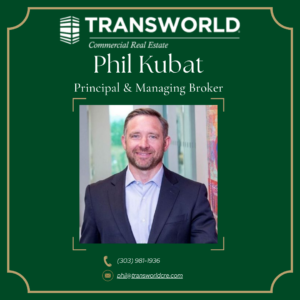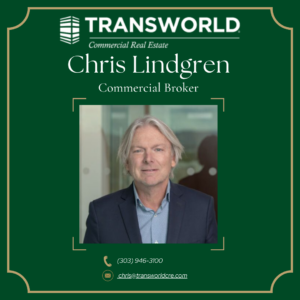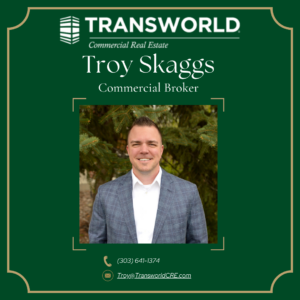The Commercial Minute Blog – July 26, 2023

Investing in commercial real estate can be a lucrative venture, providing investors with various avenues to generate income. In this article, we will explore the different wealth-building opportunities associated with buying commercial properties.
From net operating income to capital appreciation, understanding these concepts is essential for maximizing returns on your investment.
Net Operating Income (NOI)
Net operating income (NOI) is a crucial metric used to analyze the profitability of income-generating real estate investments. It is calculated by subtracting operating expenses from the revenue generated by the property. Operating expenses include maintenance costs, property management fees, and property taxes. NOI does not take into account mortgage payments, depreciation, or amortization.
NOI is an important indicator of the property’s cash flow potential. By focusing on maximizing NOI, investors can ensure consistent income streams from their commercial properties.
Capitalization Rates (Cap Rates)
The capitalization rate, also known as the cap rate, is a key factor in evaluating the return on investment for a commercial property. It is expressed as a percentage and is calculated by dividing the property’s net operating income by its asset value.
A higher cap rate indicates a higher potential return on investment. However, it’s important to consider other factors such as market conditions, location, and property type when assessing cap rates. A cap rate can vary significantly depending on these factors and should be compared to similar properties in the market.
Tax Shelter Offsets
One advantage of investing in commercial real estate is the ability to use tax shelter offsets to mitigate taxable income. Tax shelters can include investments or accounts that provide favorable tax treatment, as well as deductions or credits that lower taxable income.
To fully leverage tax shelter offsets, consulting with a financial planner or accountant specializing in commercial real estate investments is advisable. They can help you navigate complex tax regulations and structure your investments to optimize tax benefits.
Equity Build-Up
Equity build-up is another wealth-building opportunity associated with commercial real estate investments. The property’s equity increases as an investor makes regular mortgage payments on the principal and interest.
Equity build-up can be calculated by dividing the first year’s equity build-up by the initial cash investment.
Building equity in a commercial property provides long-term value and can be leveraged for future investments or used as collateral for financing. It is an essential component of wealth accumulation in the commercial real estate market.
Capital Appreciation
Capital appreciation refers to the increase in a property’s market price over time. External market factors drive it and can result in significant returns for investors when they sell the property. Capital appreciation is calculated by determining the difference between the purchase and selling prices of the property.
While capital appreciation is not guaranteed, investing in markets with strong growth potential and demand can increase the likelihood of realizing substantial capital gains. Conducting thorough market research and analysis before making investment decisions is important.
Why Commercial Real Estate is a Good Investment
Commercial real estate offers several advantages that make it a compelling investment option. First, it provides the opportunity for high and consistent returns, often in the form of passive income. Unlike stocks, which can be volatile and unpredictable, commercial real estate can offer stable cash flow streams.
Additionally, commercial real estate serves as a diversification tool, allowing investors to spread their risk across different asset classes. Investing in commercial properties can reduce their exposure to stock market fluctuations and potentially achieve a more balanced and resilient investment portfolio.
Evaluating Commercial Investments
Proper evaluation is crucial when investing in commercial real estate. One common method is to assess investments based on the capitalization rate (cap rate). The cap rate measures the expected return on investment if the property were purchased outright. It is calculated by dividing the net operating income by the sales price of the property.
A good cap rate for a commercial investment property falls within the range of 4% to 10% per year. However, it is essential to consider factors such as property type, location, and market conditions when evaluating cap rates. Comparing the cap rate of a specific property to similar properties in the market can provide valuable insights into its potential performance.
Finding Commercial Investment Opportunities
To find commercial investment opportunities, it is advisable to work with a local buyer representative or commercial real estate broker. These professionals have access to internal listings and upcoming properties on the market. They can guide you through the process and help you identify suitable investment options based on your specific requirements.
Transworld Commercial Real Estate offers a unique advantage in sourcing off-market deals through its partnership with Transworld Business Advisors. These off-market opportunities can provide better options than publicly listed properties and give investors a competitive edge.
Considerations Before Investing in Commercial Real Estate
Before investing in commercial real estate, it is important to weigh the pros and cons. Commercial properties typically offer a better rate of return than residential properties and provide a hedge against inflation. However, investing in commercial real estate requires a higher upfront capital commitment compared to other investment options.
Insurance is also a crucial consideration when investing in commercial properties. Due to the public nature of commercial properties, there is a higher level of risk exposure. Adequate insurance coverage is necessary to protect against potential liabilities and unforeseen circumstances.
Down Payment Requirements for Commercial Properties
The minimum down payment required for purchasing a commercial property is generally between 20% and 30% of the total purchase price. However, if financing is obtained through the Small Business Administration (SBA), the down payment may be as low as 10%.
It is advisable to consult with a commercial real estate broker or lender to determine the specific down payment requirements based on your financial situation and the type of property being purchased.
Investment Brokerage Services at Transworld Commercial Real Estate
Transworld Commercial Real Estate offers comprehensive investment brokerage services to help investors navigate the commercial real estate market. Their services include property search and research, licensing and permitting due diligence, drafting purchase contracts, negotiating terms, and managing key dates and deadlines.
Transworld’s experienced brokers have expertise in various property types, including industrial, flex, office, retail, special purpose, ground-up development, build-to-suit, franchise, and owner-occupied properties. They utilize market data and trends to provide objective investment recommendations and uncover unique investment opportunities.
Contact one of their expert brokers at Transworld Commercial Real Estate to explore commercial investment opportunities and leverage Transworld’s expertise.
Disclaimer: The information provided in this article is for informational purposes only. It does not constitute financial or investment advice. Always consult with a qualified financial advisor before making any investment decisions.

Principal & Managing Broker
(720) 909-8557
phil@transworldcre.com

Commercial Broker
(720) 729-0551
jason@transworldcre.com

Commercial Broker
(720) 729-0551
chris@transworldcre.com

Commercial Broker
(720) 764-1374
troy@transworldcre.com

Commercial Broker
(720) 856-3601
jweber@transworldcre.com
Transworld Commercial Real Estate provides national brokerage services to help clients purchase buildings, lease spaces, cash out commercial investments, conduct sale leasebacks, and assist with tenant advocacy services. View our current public Properties for Sale or lease. For more information on buying, selling, or leasing commercial real estate, contact either of the brokers involved in the transactions listed above.
Transworld Commercial Real Estate (TCRE) provides holistic services for commercial real estate acquisitions & dispositions. Phil Kubat leads TCRE as Principal & Managing Broker, bringing with him more than 15 years of industry expertise in commercial real estate in Colorado and Nationally. Transworld CRE was established as a partnership between Phil and Jessica & Al Fialkovich, the Co-Founders of Transworld Business Advisors and experts in founding, building, and selling small businesses, allowing them to bring a truly holistic approach to their client services. This partnership focuses on providing a one stop shop for client needs including strategic representation for the lease, purchase, or sale of commercial real estate space as well as business exit and acquisition advisory services.

